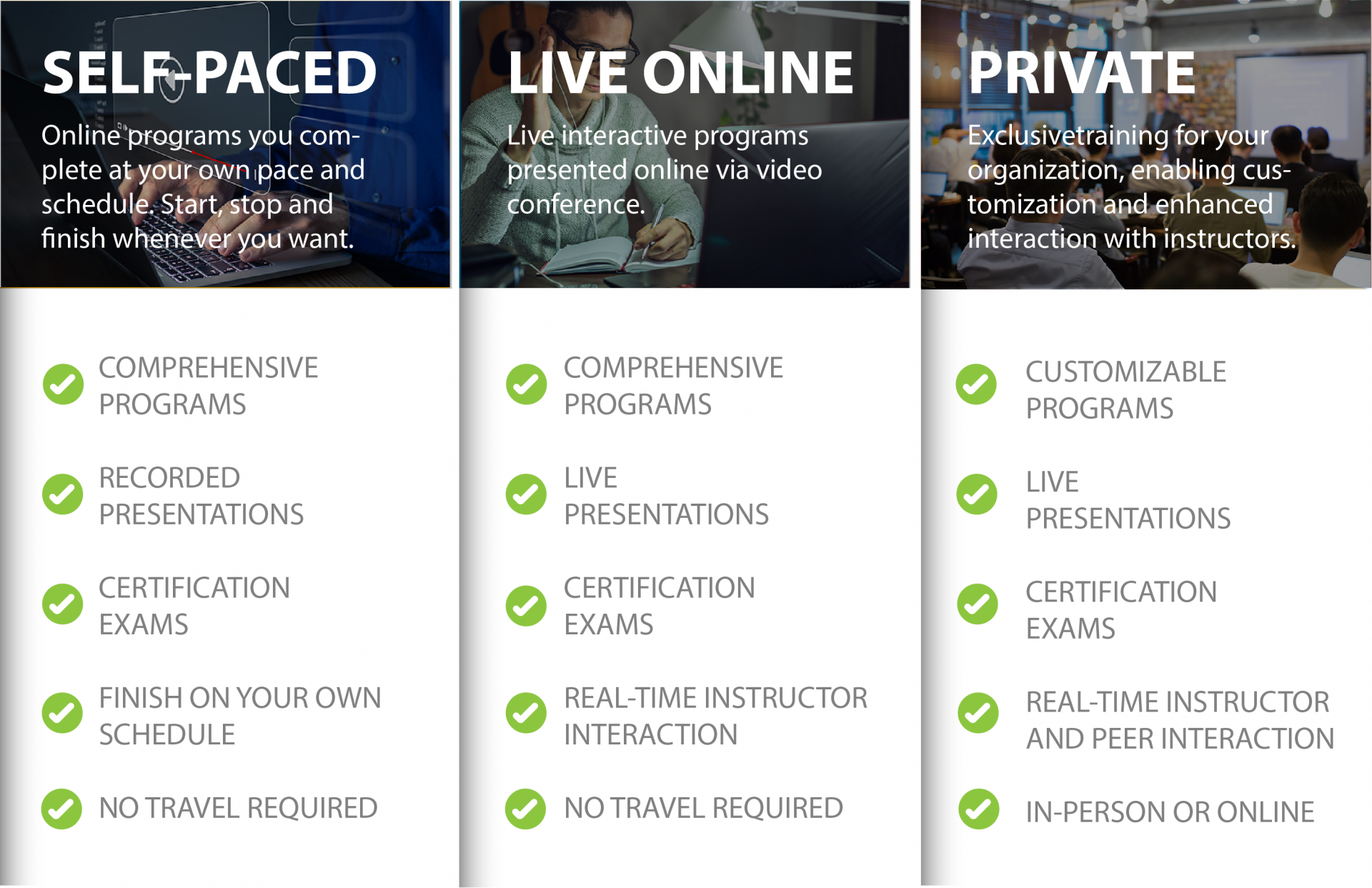Crime can be directly influenced by the design of the physical environment
Reduce fear and the incidence of crime and improve quality of life
Crime Prevention Through Environmental Design (CPTED) is a series of building design strategies aimed at deterring criminal behavior through environmental design.
Law enforcement professionals, community planners and architects should be well versed in CPTED principles and strategies. They should work collaboratively to implement these strategies for new buildings and major renovation projects to minimize the occurrence of crime and provide for a safer environment.
Write your awesome label here.
Executive Director Dan Keller provides an overview of the ACPI CPTED certification program
Course Details
This comprehensive training program provides a set of design strategies that can passively discourage inappropriate behavior and criminal activity. This program is presented online, eliminating the cost and disruption of travel.
Effectively engage in the security design for building and community projects
Establish proactive and unobtrusive crime prevention strategies in your community or organization
Enhance trust in your organization to improve relations with your community and constituents
Develop skills needed to advance your career in security or law enforcement
Obtain Continuing Professional Education (CPE) credit towards ASIS certifications
Who Should Attend?
-
Law Enforcement Personnel
-
Architects and Engineers
-
Business Leaders
-
Crime Prevention Specialists
-
Government Leaders
-
Community Officials
-
School Administrators
-
Security Professionals
-
Security Consultants
-
Security Solutions Providers
Write your awesome label here.
Participants who successfully complete the program will achieve lifetime recognition as a Certified CPTED Specialist
What's Included?
-
41 Topic Areas
-
Presentation Slides
-
Reference Materials
-
Online Community Forum
-
Certification Exam
-
Lifetime Access
Course Contents (click + to expand)
Natural Surveillance
Natural Access Control
Territorial Reinforcement
Maintenance
Activity Support
Introduction and Overview
Program Overview and Introduction
Understanding When Security is an Issue
Introduction to CPTED
Straight Talk About CPTED
1st and 2nd Generation CPTED
Understanding When Security is an Issue
Introduction to CPTED
Straight Talk About CPTED
1st and 2nd Generation CPTED
Physical Design Considerations
Landscaping
Fences and Exterior Sensors
Bollards and Vehicular Barriers
Loading Docks
Dumpsters
Wayfinding and Signage
Interior Design
Visitor Management
Preventing Tailgating
Security Lighting
Glazing
Lobbies
Countertops
Fences and Exterior Sensors
Bollards and Vehicular Barriers
Loading Docks
Dumpsters
Wayfinding and Signage
Interior Design
Visitor Management
Preventing Tailgating
Security Lighting
Glazing
Lobbies
Countertops
CPTED Applications
Single Family Homes
Multi-Family Homes
Office Buildings
Parking Lots
Schools
Convenience Stores
Parks, Trails and Greenways
Public Restrooms
Public Art
Multi-Family Homes
Office Buildings
Parking Lots
Schools
Convenience Stores
Parks, Trails and Greenways
Public Restrooms
Public Art
Legal and Regulatory Considerations
Ordinances
Premises Liability
Planning and Zoning
Premises Liability
Planning and Zoning
Other Best Practices
Crime Forecasting
Activity Support
Neighborhood Revitalization
Traffic Calming
Graffiti
Site Plans
CPTED for Architects
Mistakes Architects Make
CPTED and LEED
CPTED and COVID
Activity Support
Neighborhood Revitalization
Traffic Calming
Graffiti
Site Plans
CPTED for Architects
Mistakes Architects Make
CPTED and LEED
CPTED and COVID
Crime Prevention for Businesses and Commercial Facilities
Commercial and Retail Businesses
Shoplifting
Business Crime Watch
Organized Retail Crime
Commercial Robberies
Flash Mobs
Convenience Stores
Pharmacies
Jewelry Stores
Restaurants
Overnight Lodging
Financial Institutions
Automated Teller Machines
Cargo Theft
Metal Theft
Mini Storage Facilities
Fleet Watch
Houses of Worship
Workplace Violence
Construction Sites
Professional Home Visitors
Shoplifting
Business Crime Watch
Organized Retail Crime
Commercial Robberies
Flash Mobs
Convenience Stores
Pharmacies
Jewelry Stores
Restaurants
Overnight Lodging
Financial Institutions
Automated Teller Machines
Cargo Theft
Metal Theft
Mini Storage Facilities
Fleet Watch
Houses of Worship
Workplace Violence
Construction Sites
Professional Home Visitors
Additional Resources and Bonus Materials
CPTED Surveys
Broken Windows
Selling CPTED
Manufacturing Facilities
Office, Government and Academic Buildings
Exterior Communications Infrastructure
Warehouses
Automatic Gates
CBR Safety
City of Orlando CPTED Guidelines
City of Virginia Beach CPTED Guidelines
IESNA Recommended Lighting Levels
Security Lighting for People, Property and Public Spaces
CPTED for Parking Facilities
Oshkosh PD CPTED Handbook
VCPA CPTED Guidelines
Broken Windows
Selling CPTED
Manufacturing Facilities
Office, Government and Academic Buildings
Exterior Communications Infrastructure
Warehouses
Automatic Gates
CBR Safety
City of Orlando CPTED Guidelines
City of Virginia Beach CPTED Guidelines
IESNA Recommended Lighting Levels
Security Lighting for People, Property and Public Spaces
CPTED for Parking Facilities
Oshkosh PD CPTED Handbook
VCPA CPTED Guidelines
Exam and Course Evaluation
The proper design and effective use of the built environment can lead to a reduction of fear and incidences of crime, and an improvement in the quality of life
FEATURED INSTRUCTOR
Dan Keller
Dan brings more than 50 years of law enforcement and security experience. He has trained thousands of law enforcement personnel, architects and community planners from throughout the world in CPTED. Dan founded ACPI in 1998 after retiring as the Director of Public Safety at the University of Louisville, where he served for 26 years. Previously he served as the Assistant Director of Security at Southern Illinois University and founder and CEO of Aegis Protection Group and Aegis Security Design, a security consulting and engineering firm. He holds B.S. and M.B.A. degrees from Southern Illinois University and is a graduate of the FBI National Academy and the Southern Police Institute.

Simple Process. Extraordinary Value.
Programs of this nature typically cost thousands of dollars to attend, but we have worked to reduce the cost and disruption typically encountered when attending multi-day training as much as possible. We provide highly flexible registration options. Register for multiple courses or register a group for an additional discount (price will be updated automatically). If you are not able to pay by credit card, select 'Invoice' during checkout to request an invoice to pay offline (enrollment will be completed once final payment is received).
Individual
Single Course: $475
We understand it is not always possible for multiple people to attend.
Individual
Multiple Courses: $425
Receive an additional $50 discount if you register for multiple courses at once.
Group
$425 / person
Register multiple people from the same organization for the greatest value.

The global leader in comprehensive crime prevention training and certification programs for state and local law enforcement, campus law enforcement, schools and security professionals.
Copyright © 2025 | American Crime Prevention Institute. All Rights Reserved
Write your awesome label here.
Join our newsletter!
Thank you!
Which format is right for you?


